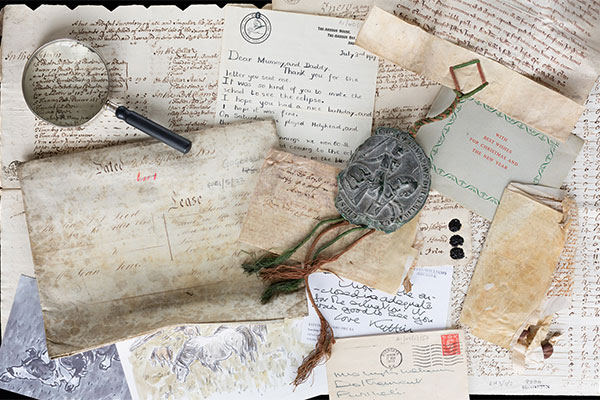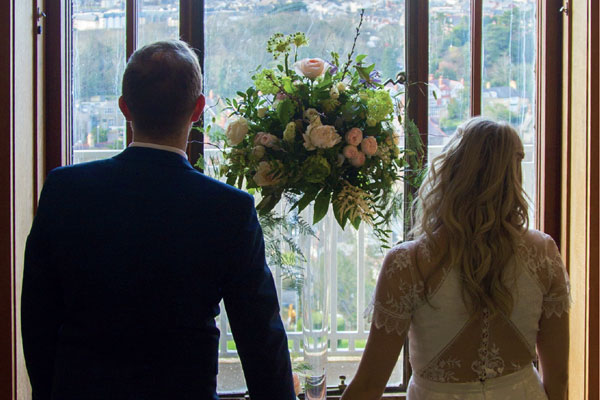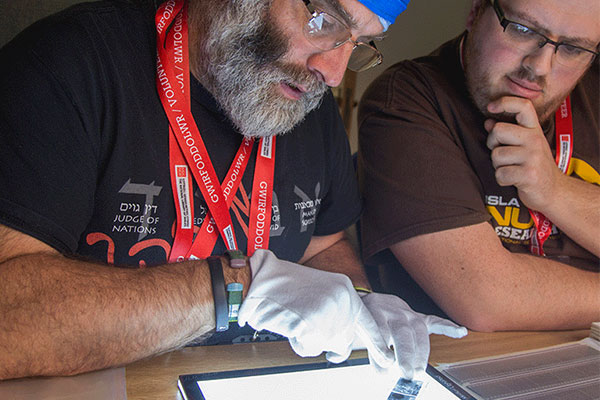Following The Flame
Sport defines us. We are a small nation, but our record of achievement – in a wide range of sports on the international stage – is inspiring. We really do punch well above our weight.
Lynn Davies CBE
The Following the Flame exhibition uses the build up to the 2012 Games as the main impetus to explore and celebrate the inspiring history of often-forgotten Welsh men and women who attended the Games whether as competitors, officials, coaches, physiotherapists, administrators or spectators … through their own words and images.
The exhibition will be launched at the National Library of Wales on 31 March 2012 by paralympian twice gold cycling medallist, Simon Richardson. The exhibition will then be opened to the public from 31 March to 16 June 2012.
The exhibition will take the visitor on a fascinating journey from the origins of the Olympic Games in Greece (776BC), through their demise more than one thousand years later, to the important role of Britain in their re-establishment in Athens in 1896, and the many significant episodes (both heroic and tragic) in their history ever since.
Themes of the Exhibition
1. only men aloud: at the Ancient Games and in the early years of the Modern Olympics, women were banned from participating (at the Ancient Games from attending altogether):
Women have but one task, that of crowning the winner with garlands.
Baron de Coubertin (1863-1937), creator of the Modern Olympics, speaking in 1902
2. give peace a chance: Adolf Hitler saw sport as a “way to weed out the weak, Jewish, and other undesirables”, banning these and other “inferiors” from his Nazi Games of 1936. Unfortunately for the Fuehrer, however, the participation and four gold medals of Black-American runner, Jesse Owens, from the then still-segregated USA, shattered the Nazi illusion of ‘Aryan supremacy’:
The Americans ought to be ashamed of themselves for letting their medals be won by Negroes. I myself would never even shake hands with one of them.
Adolf Hitler
I didn’t come to Berlin to shake hands, anyway.
Jesse Owens
3. the Olympic flame: stolen by Prometheus from the gods for which he was punished by being chained to a rock and having an eagle peck out his insides, only for them to grow back overnight and the torture to be repeated the next day … for all eternity.
4. paralympians: “We will have come of age when the media criticise our performances and are negative about us in the same way as they are for other sportspeople rather than constantly praising us as being ‘brave’. Paralympians are achievers who do not necessarily wish to be portrayed constantly as ‘overcoming adversity’.”
Dame Tanni Grey-Thompson
5. Wales: remembering not to forget! Even though Wales is just 5% of the population of the UK – with less than half the population of London – it won nearly 11% of the British medals at the Beijing Olympics and nearly 14% of the Paralympic medals! At the most recent Commonwealth Games in Delhi in 2010, per head of population, Wales once again performed by far the best of all of the home nations!
6. an Olympic nation? Although there are a number of countries smaller in population than Wales which participate in the Games in their own right – some with less than a third of our numbers – it is a matter of some debate whether the Welsh nation should be allowed to field its own Olympic or Paralympic teams. We would need, in the first instance, our separate nation status to be recognised within the IOC, and, although the establishment of the National Assembly for Wales in 1998 and the March 2011 vote for an extension of powers moves us a few steps in that direction, it still seems a distant dream, or as some might say, nightmare:
7. bread and circuses: The Games have changed hugely since their origins in Ancient Greece. They have grown in size to become the greatest festival in the world. In the first of the Modern Olympics in 1896, only fourteen nations and 211 athletes took part (and most of these were from the home nation, Greece). In the recent Beijing Games, there were 10,500 competitors, coming from 204 countries, watched by nearly 4 billion people from every corner of the globe.
Background
Following the Flame has been funded by Legacy Trust UK, creating a lasting impact from the London 2012 Olympic and Paralympic Games by funding ideas and local talent to inspire creativity across the UK. It has been led by Wrexham Heritage Service and developed and delivered under the co-ordination of Phil Cope.
Following the Flame
The National Library of Wales,
Aberystwyth
31 March – 16 June 2012
For further information
Siôn Jobbins, NLW Press Office: 01970 632902 post@llgc.org.uk




